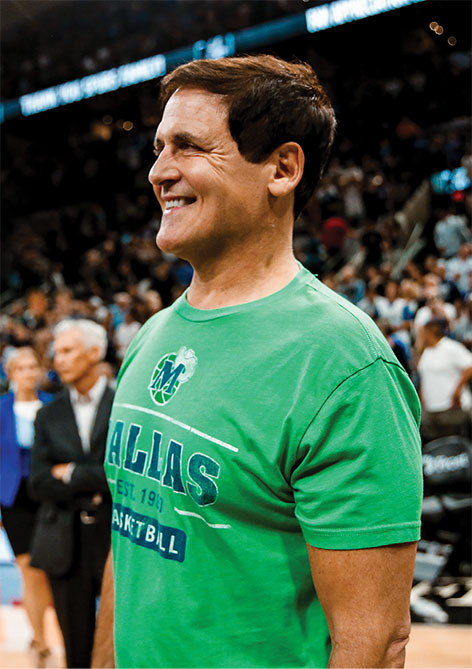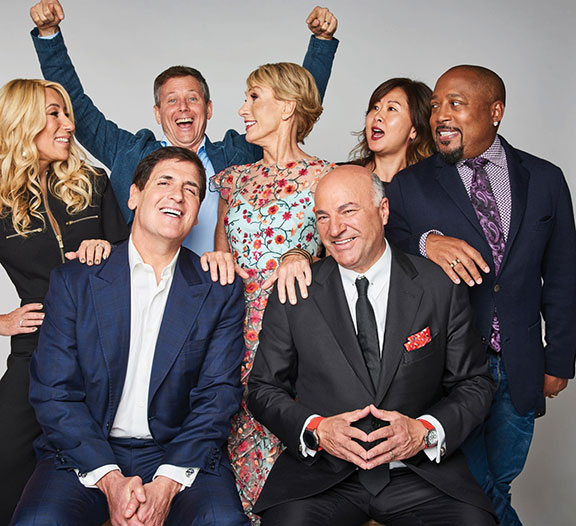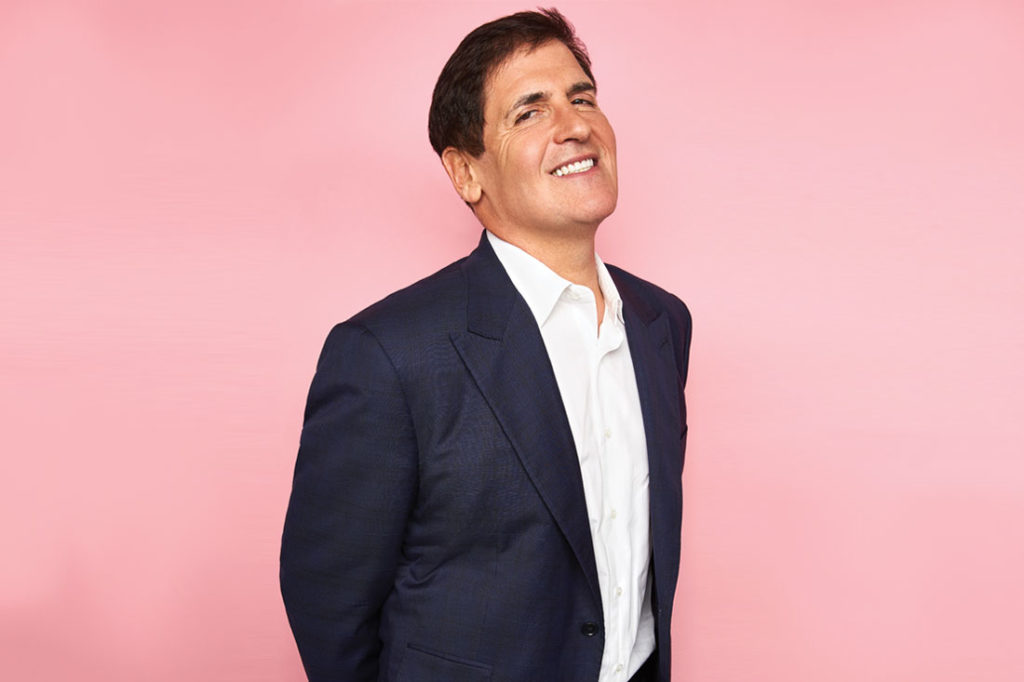Mark Cuban knows what he would do if he were starting over today.
That is if he wasn’t a globally recognizable billionaire in his early 60s, if he were instead a fresh-faced 20-something just out of college or someone looking to make his way in the world, Cuban would focus his time and energy on one thing: voice computing. He would learn everything he possibly could about scripting for Amazon and for Google Home. He would build a business around teaching both at-home consumers and commercial enterprises how to personalize and customize their voice-activated devices.
“I would become an expert in ambient computing,” he said in one recent interview, pondering the hypothetical. “Particularly now that we’re trying to reduce touch points, ambient computing is the best way to do that.”
Cuban believes that the speakers on our counters are just the beginning. Smart entrepreneurs, he says, are taking advantage of the strange moment we’re living through and educating themselves about voice computing technology.
This is just a sample of the seemingly endless ideas he’s generated over the last few months.
In history books, the year 2020 will be recorded as one massive, extended global disruption. The world has been whacked with a global pandemic, prolonged economic uncertainty, profound political and social discord, and ubiquitous protests of all kinds. Nobody knows for sure what the future will look like.
Mark Cuban is no stranger to disruption, though. In fact, it’s kind of his specialty. Disruption has been a part of not just his business strategies, but his entire personality. He made the bulk of his fortune by forever changing the business of radio. After buying the Dallas Mavericks basketball franchise, he helped reshape the entire NBA. Even on Shark Tank, his snarky, skeptical, often-cunning approach to doing business dramatically alters the dynamics (and watchability) of the show. For decades now, Cuban has bent the world, breaking and rebuilding, re-envisioning to at least a small degree the entire business of professional sports, the way movies are funded, even the modern American political landscape.

So it’s no surprise that Cuban sees our current moment as one giant opportunity. He sees it as a chance for businesses across America to refresh and restart, for entrepreneurs to create new companies, for all of us to transform ourselves for the better.
He’s not shy about sharing his thoughts either, pontificating about everything from social justice, to healthcare, to business strategies in a variety of venues. As our society struggles with a multitude of new problems and issues—and a dearth of leadership and answers—Cuban has emerged as someone both journalists and business moguls turn to for ideas and potential solutions.
When I caught up with him for this piece, I wanted to know the specifics of how some of his businesses are dealing with disruption, his thoughts on which American industries he thinks will flourish, and about his own recent journey of personal growth.
Some of his ideas are a bit opaque and general. He’s repeatedly suggested that America needs to be “innovative, agile, and creative,” for example. Other thoughts are more fleshed out, like his idea for the federal government to provide bi-weekly stimulus payments of $1,000 to every household in the country. To drive spending, the recipients of this hypothetical money would have to spend it in a short amount of time or lose it. Cuban says he doesn’t care how the money is spent, as long as it gets circulated.
“We need consumer demand,” he’s said. “Otherwise when companies open they can’t stay open.”
I asked him what kind of advice he would give to someone considering starting a business right now.
“Don’t try to copy what’s been done,” he told me. “Try to find new ways to do things. We have become a much more digital nation. We are obviously much more aware of health issues and protecting ourselves.”
He gave me a series of questions he suggests would-be entrepreneurs consider: “What new ways of doing business do you think we should be doing to change the way things are done? Is there something you see that others can’t? How can you change the game?”
* * *
It’s impossible to know exactly what our work lives will look like going forward. Zoom meetings and teleconferencing is just the beginning. Companies around the world have realized how much people can accomplish working from home, and how unnecessary office spaces can be.
Every enterprise has been forced to question the value of face-to-face, in-person communication. Some businesses have learned they can’t survive without it. Others see now that they never needed cubicles or drawn-out meetings around a long table—that you can accomplish a lot in a Slack channel or an email.
Cuban thinks that traditional brick-and-mortar retail will have a hard time in our new normal. Commercial real estate will completely change, too, and he thinks businesses are likely to entirely rethink the use of their physical spaces. There will likely be fewer bodies, but maybe this means space to add value in new ways we can’t even conceive of yet.
The obvious winners, Cuban points out, will be the businesses that can quickly adapt to an online environment, companies that can manage their supply chains through or around disruptions.
“The new normal can also mean looking at the political climate,” he tells me. “Cultivate.us is a browser extension that helps you look for products made in America when you shop online.”
When I ask him about how his Shark Tank investment businesses are handling the pandemic, he pointed to two companies that adapted quickly. The first was Dude Wipes, which makes baby wipes branded for men. “Dude Wipes saw the opportunity to leverage a toilet paper shortage and get inventory online and in retail,” Cuban says. “Their business has exploded!”
The second company was Unreal Deli, a vegan corned beef company. “More people became focused on their health,” he tells me. (Cuban is a vegetarian.) “More people looked at ways to go toward a plant-based diet. Unreal Deli worked with us to expand their distribution into Whole Foods, online, and into delis that were looking to expand their delivery options.”
He says that several other companies he’s invested in have “dramatically expanded their online offerings to reach people who no longer shopped at retail.”

He’s stressed over the last few months that every CEO or business owner has something they’ve been wanting to do—whether it’s reworking a marketing campaign or reconfiguring an accounting system or certain logistics—but never had the time.
“Now’s the time,” Cuban tells them. This is a chance to become more efficient.
He thinks some small businesses have an advantage over larger companies that might tend to be more focused on protecting their legacy businesses.
“They can’t be as agile as a small business can,” he’s explained. “If you’re competing with larger companies who maybe can work on smaller margins, maybe you can work on smaller margins because you’re lean and mean.”
I ask him what the country’s leaders need to be doing to give businesses the best chance to succeed.
“Make it easier to start businesses,” Cuban says. “Every business should be able to quickly and easily set up a business, with every incorporation, sales tax, etc., needed by going to a single page or app. Sometimes the hardest part of starting a sole proprietorship is dealing with creating it. It should be easy, not hard.”
* * *
Cuban has long believed that our country’s future will depend on a great deal of artificial intelligence and robotics—he’s sponsored AI camps for young students for years—but the pandemic has him even more convinced. Complicated, self-learning algorithms will control more and more of our lives: everything from a complex diagnosis of disease to how a restaurant determines where to advertise. Making the decisions about how to gather this data will become a highly valued skill. That’s why Cuban says he thinks a philosophy degree may soon be worth more than a computer science degree.
I’m curious how an average entrepreneur with no technical expertise might think about the effects something like AI could have on their business.
“Every entrepreneur has to always be learning.” Cuban tells me. “Just as we all had to learn about the internet, computers, mobile computing, apps, etc., we have to make an effort to learn about AI and Voice to see how it will impact our business and industry and look for opportunities.”
He tells me he’s particularly concerned with the possibility of small business owners being taken advantage of by people claiming to be able to help them with this type of technology.
“I don’t think you can just defer to someone else and hope they can explain it to you,” he says. “I truly think the most successful companies, even if it’s just a one-person operation, have to invest the time to learn about the basics. Otherwise you will always be susceptible to people trying to hustle and mislead you claiming they know things they don’t.”
Of course, Cuban has never shied away from the hands-on work that comes with entrepreneurship. He could teach masterclasses on grind and hustle. It’s been part of his story from the very beginning. His first venture was a door-to-door operation selling garbage bags. In college he gave dance lessons and opened a bar.
He has occasionally scoffed at pitches from founders on Shark Tank who intend to pay themselves even a rather modest salary. Cuban himself slept on the floor for nearly a year, one of six roommates in a three-bedroom apartment as he scraped and scrimped for the money needed to start his first company, MicroSystems. He would eventually grow it to more than $30 million in revenue before cashing out. He soon moved on to help found the webcasting company Audionet, which would become Broadcast.com. When Broadcast.com sold to Yahoo! in 1999, Cuban’s fortune was cemented. But his hustling nature didn’t go away.
“You’ve got to grind,” he once told a SXSW audience about successful entrepreneurship. “It takes work. There are no shortcuts. People think I start a business, and there is this straight line to some level of success. It never works that way.
“There are going to be things that upset you. There is going to be failure, and if you’re not able to hustle, if you’re not able to grind, you’re not going to be able to fight through those things.”
* * *
Sometimes it feels like Cuban is perpetually running for president. For years, his name has been tossed around as a possible outsider candidate in both of the major political parties. He’s also a media-savvy billionaire who appears on a network reality TV show all about business, a model that has had some recent electoral success.
In the end though, while he may or may not ever actually appear on a ballot, he’s constantly building his own brand. And that brand is a new, smart way of doing things. It’s future-oriented business acumen. It’s competent leadership.
When I interviewed Cuban in the fall, we didn’t know how the elections would turn out, but we understood that one way or the other, the future of our country would look very different very soon. I asked what he thought the nation’s leaders need to do to give the country the best chance to heal and succeed moving forward.
“We need leadership,” he said. “Someone who doesn’t view our citizens as Republicans or Democrats, but as Americans and wants to connect to and support all of us.”
Overall, Cuban’s optimistic—about some things at least. He says that in 20 years, he expects there will be dozens of what he calls “world-class, game-changing companies” that were formed in the aftermath of 2020. It’s something he mentions often when talking about the future. This, he tells me, is what has always driven him.
“I love to learn,” he says. “I love to compete. I love to find ways to break things and change the way things have always been done. That keeps me always fired up and moving forward.”
One of the other things he’s said a lot lately is that the first question interviewers will ask prospective hires will be “What did you learn during the pandemic of 2020? What skills did you add?”
So I ask Cuban: “What did you learn? What skills did you add or how have you grown through it?”
“That’s a great question,” he answers. “I continue to read as much and learn as much as I can about AI. I’m currently reading the book Competing in the Age of AI. I read the book Healthy Buildings to try to get an understanding of any changes we may have to make where we work to address COVID risks.”
Finally I ask Cuban which parts of 2020 he wants to leave behind and what he’ll carry forward. He doesn’t feel any need to overthink it.
“I’m pretty much happy to leave it all behind.”

Mark Cuban has developed an interesting portfolio of proposed solutions for some of our society’s biggest challenges. Some of the ideas come from his own experiences and struggles. In some cases, he’s commissioned studies to examine a particular issue. Put together, these solutions form something between a political platform and a guide for better, smarter living. Here are a few:
Economic Instability
Cuban argues that when you look at our past, America has always bounced back from economic downturns and massive disruption. We just have a history of innovating our way out of these problems, Cuban has said. “In 10 years, we’ll be way ahead of where we were. In two years? I don’t know.”
Affordable Healthcare
Some of the sharpest minds in both business and politics have struggled with how to improve the quality while lowering the cost of American healthcare. Now, amid a global pandemic, and with such a large percentage of the workforce consisting of solopreneurs, freelancers and independent workers, the situation is even more dire. Cuban, who self-insures his companies, opposes a single-payer plan. Instead, he’s suggested a system in which anyone making less than 250 percent of the federal poverty level would only have to cover co-pays. Everyone earning more than that would pay on a means-tested scale capped at 10 percent of their annual income.
Affordable College
Cuban has long felt that the financial model employed by most universities and colleges are fatally flawed. He doesn’t think all college should be completely free, noting that it would likely drive up the costs and remove any incentives for efficiency. But he does think each region should have at least one government-funded university that costs nothing to attend. To determine which school would be free, he suggests the universities compete in a bidding process every few years.

In late September, a story began to circulate social media that Mark Cuban had picked up someone from a Dallas gas station and helped him enroll in rehab. It may have seemed like a far-fetched story to national audiences, but North Texans were not at all surprised. That man was Delonte West, a former Mavericks player who has fallen on hard times through struggles with mental health and substance abuse.
Concern over West’s plight grew in league circles in recent years, and West was spotted panhandling this summer. Cuban reached out to his mother to see how he could help. At her request, he tracked down West and reunited him with his mother. He then helped West enter a rehab facility.
It was far from the first time in 2020 that Cuban’s kindhearted efforts captured attention in his community. Since March, at the outset of the pandemic, he has been reimbursing Mavericks employees up to $25 per day for eating and shopping locally, doing his part to help keep local businesses afloat.
Cuban has made philanthropy an ongoing facet of his public life. The nonprofit Mark Cuban Foundation has led programs including the AI Bootcamps Initiative, supporting underserved high school students, and The Fallen Patriot Fund, which was established to help families of U.S. military personnel who were killed or seriously injured. In the summer, he donated $500,000 to the V Foundation for Cancer Research after an overture from basketball legend Dick Vitale.
Read next: How to Get Mark Cuban’s Money
This article originally appeared in the January/February 2021 issue of SUCCESS magazine.
Main photo by Matt Doyle / Contour / Getty Images



